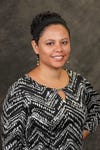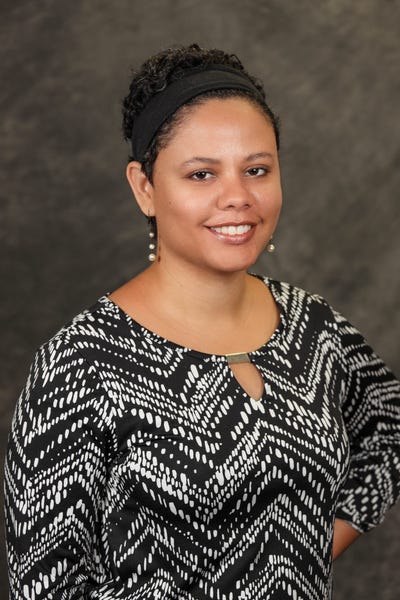CP Expo: Captain Scott Kelly Talks Leadership, Perseverance to Reach Ultimate Goals
The astronaut discussed his career in space and his unlikely path to achieve brilliance.
May 3, 2023

CHANNEL PARTNERS CONFERENCE & EXPO — Captain Scott Kelly didn’t have the most obvious path to becoming an astronaut.
For one, he was a poor student, graduating in the bottom half of his high school class.
“I was not the overachiever,” Kelly said. “I was the kid in the back of the room looking out the window. Never in a million years did I think I was ever going to be an astronaut.”
However, there were several inflection points that changed the course of his life. These he shared during his keynote, “The Sky is Not the Limit: Lessons from a Year in Space,’ at the Channel Partners Conference & Expo in Las Vegas on Tuesday.
At a young age, Kelly watched his mother decide to change her career to become a police officer. Kelly observed how she both mentally and physically trained herself for the police academy tests, often scoring higher than her male counterparts. Kelly’s mother became the first female police officer in the New Jersey town Kelly grew up in and one of only a few in the state.
He said this was the first time in his life he observed someone having a goal that they might not be able to achieve but still accomplish it.
“Doing the hard stuff always involved a goal and a plan to get there,” Kelly said, adding that it also meant focusing “on the things I can control” and being “willing to fail.”
He added: “Compartmentalization has always been a key to everything I’ve done.”
That may be the case, but Kelly acknowledged he didn’t have a sense of direction until he walked into a bookstore in college and bought “The Right Stuff” by Tom Wolfe, a narrative about the U.S. entry into space. At 18 years old, Kelly definitively knew he wanted to be an astronaut.
Little Steps
It took a few years, but Kelly became a good student, an achievement he said was marked by several little steps to achieve the goal. He eventually got a coveted spot at the U.S. Navy Flight School but, in his words, he wasn’t a particularly good pilot.
He failed an initial test landing a plane on an aircraft carrier.
Kelly’s instructor asked him, “Are you sure this career is for you?”
But Kelly persisted and retook the exam, taking advice from one school official who said, “If you’re not making small positive corrections all the time, you will fail.”
It was a message Kelly hoped would resonate with the audience of channel partners listening to the keynote.
Kelly said he continued his career in flight school, although he added, “I wasn’t the greatest fighter pilot at first but eventually I got pretty good.”
As a child, Kelly thought about becoming an astronaut but didn’t know entirely know what that meant. As a young adult, however, he was inching closer to making that goal a reality. When a roommate of his was in the process of applying to NASA for astronaut training, Kelly learned there were only 24 hours left to apply. He hurriedly submitted a one-page application, hoping he would stick out from the stack of applicants. He did and so did his brother, Sen. Mark Kelly.
Captain Scott Kelly Reaches a Lifetime Goal
There were many lessons Kelly said he learned from his fellow astronauts at NASA. One profound one was a lesson about diversity.
“When I was in the Navy, there were mostly middle-class white men,” he said. “It wasn’t until I got to NASA that I saw the power of difference. You have more solutions to the problems you are trying to solve. When you have a team that’s all the same, they think the same and there are less options.”
The reliance on difference and diversity would be useful to Kelly when he spent time working with Russian cosmonauts.
He also learned what it meant to be a leader. As Kelly defines it, “I’m a situationally dependent leader. Sometimes my crew mates knew more, and I would defer to them.”
One can’t afford to be the authoritarian or dictatorial leader on a mission, he said.
During his four space flights, Kelly helped repair the Hubble Space Telescope, served as a mission commander, and worked to understand the effects of spaceflight had on the human body, just to name a few of his endeavors. He spent an entire year in space between 2015-2016 aboard the Soyuz.
“The real reason we’re there is for the science, basic research,” Kelly said.
In fact, at one point NASA conducted twin studies on the Kelly brothers. The genetic research discovered that Scott Kelly’s gene expression changed by 7% while he was in space.
There were other changes, too. Bone and muscle mass are lost at rate of 1% per month while astronauts are in space. And some radiation exposure stimulated Kelly’s telomeres, the material that protects the ends of chromosomes from becoming frayed or tangled.
“We need to understand these things if we’re going to go to Mars one day,” Kelly said.
However, these are the intellectual pursuits of working in space. There’s also the artistry and the indescribable emotion involved with leaving Earth.
Kelly describes it like this: “It feels like the hand of God is lifting you off the launch pad and throwing you into space.”
Want to contact the author directly about this story? Have ideas for a follow-up article? Email Claudia Adrien or connect with her on LinkedIn. |
About the Author
You May Also Like


